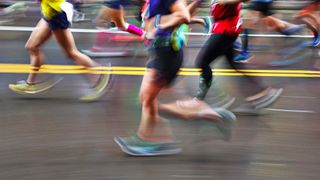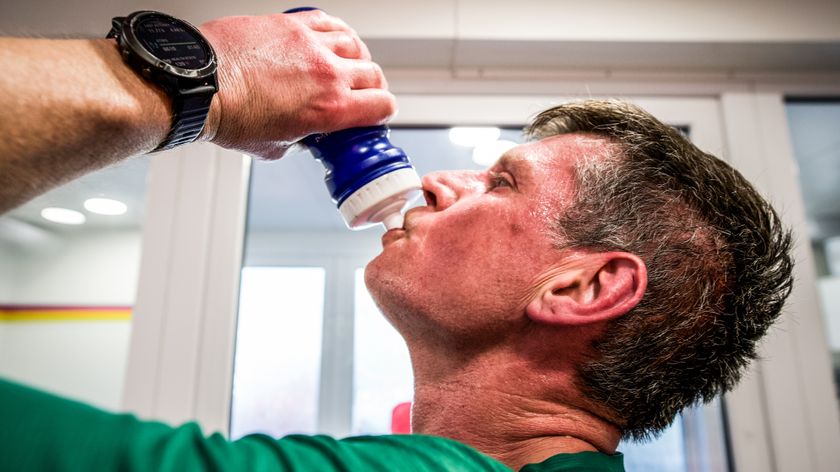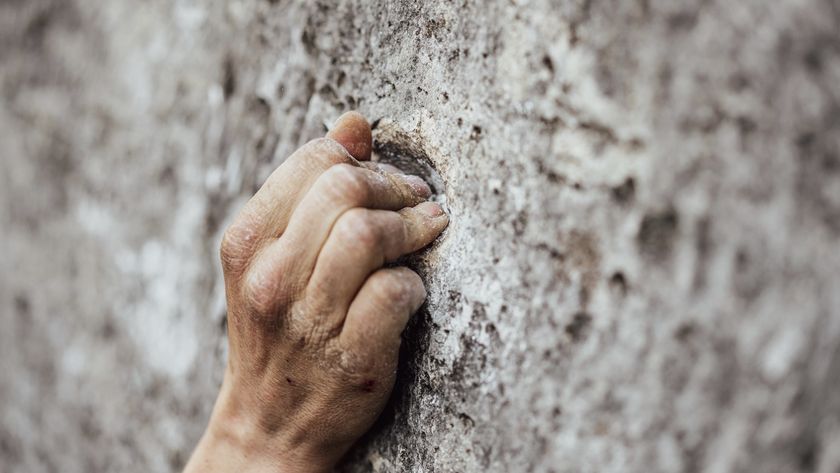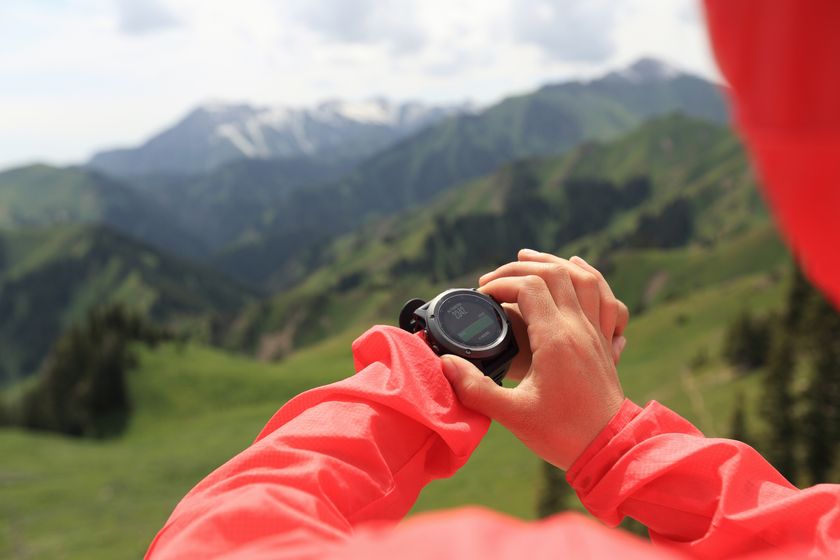Mythbusting: should you run the day before a race? Here's what experts have to say
Some marathoners swear by "shakeout runs" before a race, while others would rather preserve their energy for the big day. The question is, which is best?

It's the day before race day. You've finished tapering, packed your race kit, and prepped your evening meal. Your running shoes are waiting at the door, all ready for the big day. No doubt you're jittery, and as your sneakers stare you in the face, one thought probably crosses your mind; "should I head out for one last run?"
It's a question plenty of us ask. So-called "shakeout" runs are popular among experienced marathoners and competitive runners, but for the average Joe, you likely have fears around injury, overtraining or over-exerting yourself. We all know how important rest and recovery are, especially in those final days running up to a race, so fitting in a few more miles on that final day of training instinctively feels counterproductive.
And yet, some coaches claim the opposite is true. From stretching out those all-important muscle groups to battling performance anxiety, there are many supposed benefits of running the day before a race. Whether you're preparing for your first race or looking for a way to combat those pre-race nerves, we wanted to find out if there's any truth to these claims, or whether the risk of injury and fatigue outweighs them. In the latest of our Mythbusting features, we ask the experts to find out.
The myth

If you've ever run a race – be it a 10k, half marathon, or an ultra – you likely wondered when you should stop your training. The answer will differ depending on your experience and the plan you follow, but one thing's for certain: no one's encouraging you to cover significant mileage the day before your race.
Why, then, are shakeout runs so popular? First, a distinction is needed. These pre-race runs aren't meant to factor into your training program (if you're not ready for your race by this stage, one last run won't change anything). Instead, shakeout runs are supposed to be easy, low-intensity runs that don't require much effort. In fact, a maximum of 30 minutes slow jogging is recommended.
The alleged benefits of a short, easy run before race day are both physical and mental. "They include increasing blood flow to our limbs, keeping our muscles feeling loose, and keeping our neuromuscular connections primed for race day," explains registered dietitian and running coach Stephanie Hnatiuk. "There can also be mental benefits including reducing race day jitters by helping you run off some extra energy."
The evidence

The question is, when the next day comes around and the starting line is in sight, how much of a difference does a shakeout run really make? And, more importantly, are your muscles feeling primed, loose, and energized, or are you standing there with aching legs and tired feet after overdoing it?
Advnture Newsletter
All the latest inspiration, tips and guides to help you plan your next Advnture!
The answer, like most things in life, will depend on your own experience and running ability, but the experts suggest that the former is more likely. "Keeping up neuromuscular connections can help with speed on race day, increasing blood flow to the legs and keeping muscles feeling loose," explains Stephanie. This prevents the body from feeling too sluggish or heavy after tapering.
"Increased blood flow to the working muscles can also slightly relieve some leftover soreness from all your training up to that point," adds Frankie Ruiz, running coach and co-founder of the Miami Marathon at Life Time. "Another physical advantage is that it can help regulate your bowel movements, especially if you were affected by the travel and different schedule of eating."
Scientific studies on the impact of running performance, however, are a little scarce, with most advice based on anecdotal evidence. The Western Australian method of carb loading – a training strategy that introduces carb loading the day before a race – has athletes perform a brief but high-intensity workout (such as a few minutes of sprinting) that same day to deplete muscle glycogen stores. In a 2002 study, the regimen resulted in a 90 percent increase in glycogen storage compared to pre-carb load (a percentage comparable to the results achieved over longer carb-loading regimes of two days or more).
But shakeout runs aren't high-intensity workouts, and unless you're a seasoned athlete, this intense training and dieting regime could be more of a hindrance than a help.
There are plenty of other factors that might cause you to rethink adding a pre-race run to your list of race-day hacks. On the topic of risk assessments, it's important to note that a run before race day does increase your chances of injury. "Put simply, it's another chance to step off a curb and hurt yourself," says Frankie. "This could be the case especially if it is in unfamiliar territory." If you do insist on a shakeout run, it's best to stick to easy terrain close to home.
"A shakeout run can also detract from performance if it's done too close to your race," explains Stephanie. "For example. if you’re traveling to an event and trying to squeeze in your shakeout run late in the evening before an early morning start." If you want to sleep well before a race, it's best to avoid running late in the day as it could make it hard to drift off and disrupt the quality of your sleep.
Fact or fiction?

So, should you run the day before a race? The answer isn't clear-cut, but – in theory – the positives outweigh the potential disadvantages. A short, easy run should help prime your muscles for the big day by increasing blood flow. More likely than physical benefits, however, are the psychological ones. For many, a short run the day before a race acts like an antidote to those common pre-race nerves.
"You really aren’t going to gain any fitness so it isn’t about cramming extra miles. Instead, it's mainly to stimulate the body and bring it closer into a relaxed yet ready state," says Frankie. "You prime the mind and body ahead of your race performance by doing familiar things. This also helps keep us calm and confident going into that last night of rest before the big day."
If you do decide to do a shakeout run, plan it properly. In most cases, the best time to go running before race day is early in the morning. Not only does this give your body more time to recover before the race itself, but it will help you feel tired in the evening for a good night's rest. Remember to stay local, and take it slow.
More importantly, if you set off for a shakeout run and it doesn't feel great, don't force it. "Personally, I've had some great races where I couldn't do a shakeout run, and I've also experienced races where a short shakeout run feels ‘off’ and I let that affect my mental state going into the race," says Stephanie. A light jog before the big day might be helpful, but it certainly won't make or break your race. Nothing stands up to months of training and hard work.
"At the end of the day, shakeout runs can improve race day performance, however, runners shouldn’t put too much emphasis on whether or not they do one," says Stephanie. "If we’re traveling, working, or busy with other activities, a little bit of extra rest the day before – and a good warm-up before racing – is just as good in most situations."
Lilith is a freelance writer and trail runner based in the Derbyshire Dales. Living on the doorstep of Dovedale, she loves nothing more than heading out into the peaks to explore a new hill route. Besides running, she's also a keen hiker. Having finished the three peaks alongside her Dad, the pair are now turning their attention to the Lake District's Wainwrights and Scotland's Munros for 2025. At weekends, you'll likely find her running a fell race or scrambling up one of Derbyshire's limestone hills.












